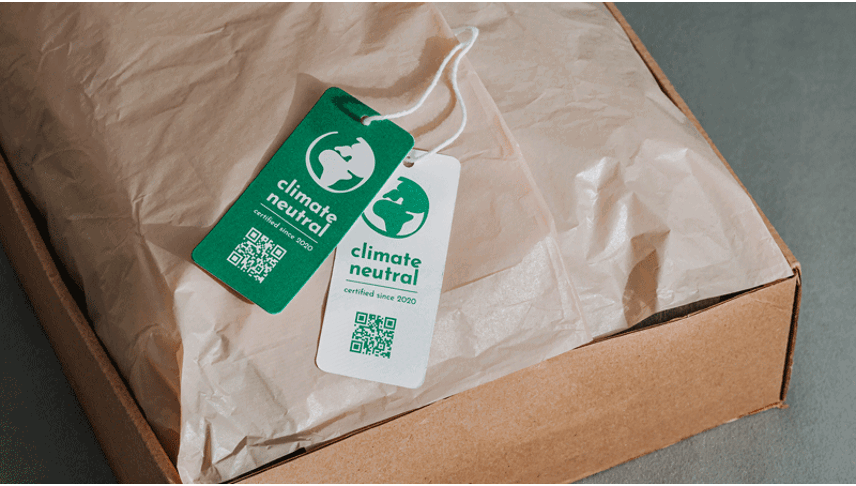Register for free and continue reading
Join our growing army of changemakers and get unlimited access to our premium content

A draft version of the Commission’s Green Claims Directive has been published in full today (22 March), with the Commission set to flesh out further details on what counts as greenwashing in specific sectors in the coming weeks.
The Directive has been drawn up in recognition of the fact that the Commission’s own analysis revealed that more than half (53%) of environmental claims on goods and services sold to the general public were “vague, misleading or based on unfounded information”.
Also acknowledged by the Commission is the fact that the proliferation of environmental certification and labelling schemes is confusing consumers, who are aware that they bear “vastly different levels” of transparency but unaware of which of the 230+ in use can be trusted. About half of labelling schemes, the Comission claims, are either not verified or ‘weakly’ verified.
The Directive document states: “If environmental claims are not reliable, comparable and verifiable, consumers and other market actors cannot fully leverage their purchasing decisions to reward better environmental performance.
“Similarly, the lack of reliable, comparable and verifiable information hinders incentives for optimising environmental performance, which would typically go hand in hand with efficiency gains and cost savings for companies along the supply chain as well.”
The Green Claims Directive proposal imposes new requirements for businesses to be able to prove their environmental claims with scientific evidence, including claims surrounding the use of recycled plastic content in packaging and products, and the carbon impact of products and services.
This is particularly true of ‘generic’ claims including “eco-friendly” or “green”, and climate-related claims, which the Commission believes are “particularly prone to being unclear and ambiguous”.
Scientific evidence must cover the entire lifecycle of a product or service.
Failure to provide this evidence, and to add more information to communications where ordered, could result in “proportionate” “dissuasive” action including fines, confiscation of revenues, and temporary exclusion from public procurement processes and public funding. It will be up to individual EU member states to enforce penalties in line with the nature and gravity of the greenwashing.
The Directive also states that companies may be rapped for greenwashing if they exclude relevant information about their environmental impact. For example, a bank with 1% of its energy portfolio in renewables should not be able to mention this and hail it as a success without also noting its support for fossil fuels. Similarly, if a business that has made a move to reduce emissions but which will drive up its plastic pollution, or vice-versa, customers could be misled.
On ecolabels, the Directive includes the EU’s own ecolabel and the organic farming labelling scheme. It places a ban on the introduction of new labels until the Directive is implemented – at which point all existing and new schemes will be subject to new third-party verification requirements. A key focus of verifiers will be aggregated scores, which will be banned.
Should the Directive be adopted this year, the Commission will publish a report assessing progress within six years maximum. It will include information provided by EU member states, which they will need to supply every year.
The European Parliament and EU member states will need to approve the Green Claims Directive before it comes into force. Through this process, further details on which exact topics and claims will come under the most scrutiny will be agreed upon.
The Commission has noted that greenwashing is particularly common in sectors including fashion, aviation and fast-moving consumer goods including cleaning products, health and beauty products and food and drink.
Changing Markets Foundation has this week published a new report detailing 51 claims made by food and drink companies over the last 12 months which do not meet the Directive’s requirements. 80% of the breaches related to the climate impact of products or businesses, including carbon and other greenhouse gases like methane.
The Foundation is calling for the EU to impose an outright ban on companies using terms such as ‘climate positive’, ‘carbon-neutral’ and Amazon’s ‘Climate Pledge Friendly’ filter. It is also calling for the EU to consider including imagery, as well as words, in the Directive, pointing to examples of dairy and beef companies picturing cows grazing when their own reports prove they are at least partly fed using man-made feeds.
Early reaction
Responding to the publication of the draft Directive, the World Benchmarking Alliance’s head of EU policy Richard Gardiner said: “The first step in countering business malpractice is to expose it, so this regulation is a welcome step to call out and combat greenwashing.
“It is vital that business claims on climate and related social issues are robust, clear and substantiated, to ensure companies are walking the talk. Consumers need to be able to understand, compare and trust information about what companies are actually doing.
“The vast extent of global corporate power means that some businesses are more influential than entire countries – and it’s only with proper accountability that companies will take the urgent action needed to protect people and planet.”


Please login or Register to leave a comment.